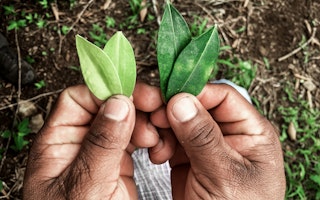How a New Approach to Coca Will Strengthen Colombia’s Democracy
By David Restrepo

For decades, coca eradication and substitution, to purportedly stop the cocaine trade at its source, were Colombia’s only policy responses to a plant that had always been part of its culture. These policies failed to reduce long-term coca cultivation, while harming the most vulnerable communities in the country and escalating the Americas’ longest civil war. The 2016 peace agreement marked the first significant shift towards a new approach, one that prioritizes human rights and public health in the issue of coca. Similarly, a new report, Coca Industrialization: A Path to Innovation, Development, and Peace in Colombia, explores coca’s beneficial uses—both new and old—and brings visibility to promising grassroots initiatives invigorated by this new turn toward more humane policies.
In the 1980s and 1990s, the U.S. global “war on drugs” sparked Colombia’s cartel wars. By disrupting coca supply from Bolivia and Peru, it also helped turn Colombia into the world’s main source of coca and cocaine. Isolated rural areas, historically neglected by the government, suddenly became a strategic battleground of the drug war. The longstanding conflict over political, economic, and land inequality intensified as new, illicit resources fueled the confrontation between guerrillas, paramilitaries, and the Colombian state. The statistics—which are still being tallied—are shocking. The conflict claimed over 200,000 lives, displaced nearly six million people, and resulted in 27,000 kidnappings and 25,000 disappearances.
Throughout this period, the United States and successive Colombian governments insisted on waging a ruthless campaign to eliminate the coca plant entirely. This, they claimed, would weaken the cocaine trade and the armed groups that fed on it. The truth was the opposite: In addition to violating human rights, increasing hunger, driving forced migration, destroying the environment, and harming people’s health, Colombia’s coca policy strengthened armed groups. It alienated the countryside and fractured rural communities; it pushed struggling farmers into the hands of cocaine dealers, paramilitaries, and guerrillas.
In short, the United States–sponsored Colombian coca policy militarized the situation while also making it worse. It created a political context in which a combination of greater military force, enormous financial expense, and a mounting body count was seen as the only path forward. Coca Industrialization offers a different route. Reflecting on the context of the historic 2016 peace accord between the government and FARC, the report:
- scans the often overlooked and 1,000-year-long history of Colombian coca and its valuable role in culture, identity, sovereignty, and nutrition for both indigenous and multiethnic communities of the Andes and Amazon;
- presents research on coca’s significant nutritional value—one of myriad applications undermined by cultural and racial bias, rather than science—and reviews the laws that have stymied both scientific research and the development of beneficial coca uses; and
- explores the Lerma Model: a novel approach to address the wellbeing, technology, and policy needs of coca-growing communities, built in partnership by Colombia’s public National Training Service and Lerma, a resilient and visionary coca-growing village in Cauca. The partnership obtained the first permit in the country’s history, issued by the National Narcotic Fund, for conducting research with coca, setting a foundation for building evidence-based, human-centric policy, where coca reform, regulation, and industry development is led by communities.
The National Training Service–Lerma partnership provides valuable lessons for policymakers and reformers in Colombia, across the Andean region, and around the world. It demonstrates the importance of driving policy change through science, experimentation, and an open dialogue between local people, experts, and policymakers.
David Restrepo is a grantee of the Open Society Foundations.
David Restrepo works on drug policy reform and product innovation in Colombia and Peru, with a focus on the coca leaf.

